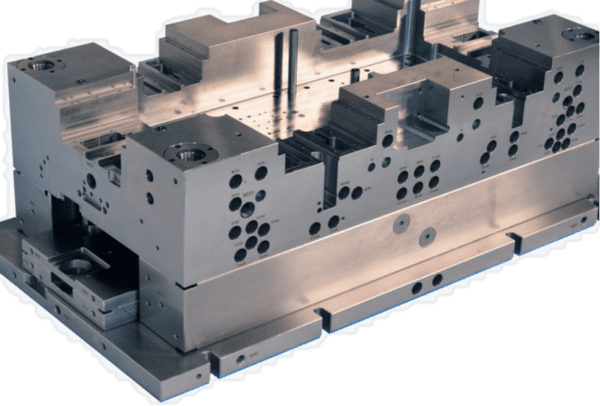
Plastics Live to Focus on Additive Manufacturing and Industry 4.0
Plastics Live uniquely fuses different areas of interest for forward-looking plastics manufacturers, key among which are the areas of additive manufacturing, digital manufacturing and Industry 4.0.
Plastics Live, incorporating AMPLAS, Industry 4.0 in Plastics, Sustainable Plastics Live will take place at the Coventry Building Society Arena from July 5-6, 2022.
One key driver for plastics manufacturers to remain competitive is to make their processes more efficient, which is why Industry 4.0 solutions (using technology to stimulate innovation and improve production processes) are gaining traction across all key industrial sectors. As these technologies are enhanced and become less expensive, as a driver, Industry 4.0 will become more and more important.
Additive manufacturing (AM) has a vital role to play in the Industry 4.0 revolution, as Event Organiser Scott Colman explains:
“The underpinnings of the concept of Industry 4.0 require that OEMs interrogate their competitive model and focus on increasing capacity to deliver more cost-effective products across the supply chain through the digitisation of the entire production process. Today, this requires that these manufacturers completely re-assess their entire value chains and apply different ways of thinking and toolsets, fusing the physical, digital, and virtual worlds together.
“Industry 4.0 encourages the integration of intelligent production systems and advanced information technologies. The promotion of a digital manufacturing strategy within the context of the ‘Fourth Industrial Revolution’ is fundamental for many plastic manufacturing companies if they are to remain competitive in the years to come, and key to this is how OEMs incorporate new generative design tools and AM into their manufacturing regimes.”
When looking at AM as a technology option with a digital manufacturing strategy, there are, of course, numerous and well-highlighted opportunities that exist from its implementation. In a way, as a part of the Industry 4.0 ecosystem, AM is unique in that each platform is a piece of disruptive hardware technology that replaces existing production methods rather than improving them, and this requires that OEMs overcome barriers to adoption and also re-evaluate preconceptions when it comes to design and production.
Scott continues: “Industry 4.0 comes with a dream of personalised mass production, which is the ability to create personalised products for each customer all the while maintaining the benefits of scale – speed, affordability, and convenience. Industry 4.0 is focused on the capture of data, analysis of data, and making changes based on this data; it’s a cycle of physical to digital, digital to digital, and back to the physical again.
“With this understanding, the role of AM becomes clear as it allows for the creation of a digital replica of a product and ‘shifts’ it to the other side of the world, next to the product’s market. With the press of a button, any product can be printed and can bypass traditional shipping and manufacturing hurdles. This saves the expensive and time-consuming burden of logistics operations, and of course, the need for different machines and configurations to produce different products. Instead, one printer can manufacture a vast variety of products.”
“It is vital within the context of Industry 4.0 that companies appreciate that AM is an umbrella term that incorporates numerous different technologies, each of which has pros and cons when applied to specific applications”, Scott adds. “In addition, these different AM platforms use different materials as well as different processing parameters, which once again means that technology choice is key to production success and efficient incorporation within a digital production process.”
“AMPLAS and Industry 4.0 in Plastics will showcase pragmatic technology and service supplier solutions in the AM and Industry 4.0 space, and will also provide information-packed conference sessions that discuss the way that plastics manufacturers can optimise their production processes,” Scott says.
The very existence of Industry 4.0 substantially depends on the capabilities of AM. The role of designers, factories, and customers is being redefined under Industry 4.0 since the current barrier of mass production on location will be overcome with personal and customised fabrication. In general, in the AM sector, there is a trend toward new materials such as ‘smart materials’ that are bespoke to required end-use part characteristics, and importantly AM facilitates the manufacture of complex and multi-part products in just one build step.
Due to the opportunities provided by AM technologies, design and production challenges are increasingly only restricted by the imagination, and Plastics Live, AMPLAS, and Industry 4.0 in plastics represent a focal point for commercial engagement and learning.
Click here to find out more about Plastics Live 2022 and register for the event.
Plastics Live
020 3198 9622
Website
Email






